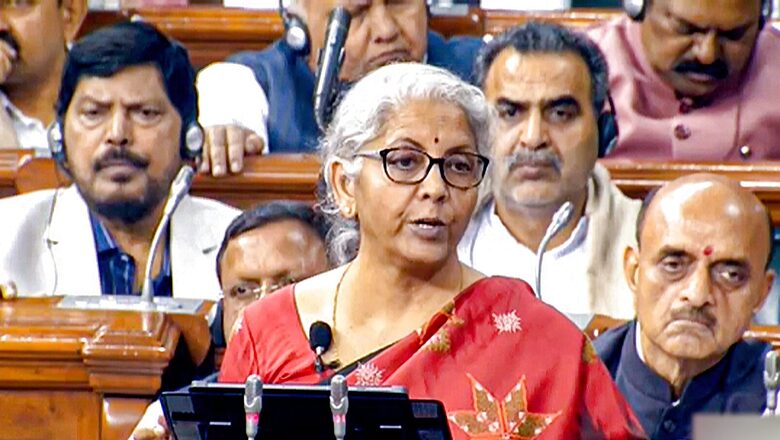
views
Budget 2023: An individual will be liable to pay tax on the maturity amount of life insurance policies where the aggregate annual premium exceeds Rs 5 lakh. However, this will not affect the tax exemption provided to the amount received on the death of a person insured.
It will also not affect insurance policies issued till March 31, 2023, finance minister Nirmala Sitharaman announced on Wednesday while presenting the Union Budget 2023.
The insurance industry has reacted to the latest announcements made by the finance minister.
Tarun Rustagi, Chief Financial Officer, Canara HSBC Life Insurance, said, “The Budget continues to focus on overall development of India through digitisation and creates more wealth generation opportunities for the middle-class families. From the individual taxation perspective, the Budget is trying to move towards a simplified regime by providing more benefits under the new taxation regime, however, from life insurance needs for everyone and from sectors’ perspective, expectations are not addressed as expected.”
Income Tax Slabs Overhauled Under New Regime, Rebate Limit Up; Check New Tax Rates
Srikanth Kandikonda, Chief Financial Officer, ManipalCigna Health Insurance, said, “The new reforms proposed are expected to increase the disposable income in the pockets of the working class, which will result in higher savings, spends and investments.”
“In addition to these positive steps, if the government would have considered a reduction in the GST rate on health insurance premium and increased the limit of tax deduction for health insurance under section 80D, these initiatives would have further helped millions of people access quality healthcare at an affordable cost,” Kandikonda added.
Sampath Reddy, Chief Investment Officer, Bajaj Allianz Life, said, “In the financial sector a boost has been provided to small savings schemes, and therefore this segment should continue to play an important role in financing the Budget deficit, with increased flows expected there.”
“However, the government announced that only traditional insurance policies with annual premium of upto Rs. 5 lakh bought from FY24 onwards will be tax-exempt, and this is a bit of a dampener to insurance industry. It may deter insurance penetration in India and also be a constraint on household financial savings (to some extent), which have already been on a decline in the past few years,” Reddy said.
Kapil Mehta, Co-founder, SecureNow Insurance Broker, said, “The income from traditional insurances where the premium is over Rs 5 lakh will not be tax exempt. While, this will dampen the interest of individuals to buy high value traditional insurances, it will increase the focus on term plans and pure risk covers which is good. A concern is that it should not result in a significant shift towards purely investment oriented unit link insurances. Overall this is a good Budget as it simplifies the tax regime and provides more disposable income. The focus on procedural improvements is also welcome.”
Nidhi Manchanda, Head of Training, Research & Development at Fintoo, added that one of the major setbacks is related to the taxability of the maturity proceeds of a life insurance policy.
“The maturity proceeds of all life insurance policies that are issued after April 1, 2023 and have an annual premium of more than Rs. 5 lakh will now be taxable. One should note that if an individual has more than one life insurance policy which is issued on or after the 1st of April 2023 and also if the aggregate amount of premium of such policies exceeds 5 lakh, then the maturity amount will be taxable,” Manchanda said.
However, the death benefit continues to remain tax-exempt from such life insurance policies, and it is not applicable to ULIPs. This move is definitely negative for the insurance industry and will impact related stocks. Post the Budget, the market has seen a fall in the stock prices of HDFC life, SBI Life and Max as they are down by around 7%, Manchanda added.
Read all the Latest Business News and Budget Live Updates here




















Comments
0 comment